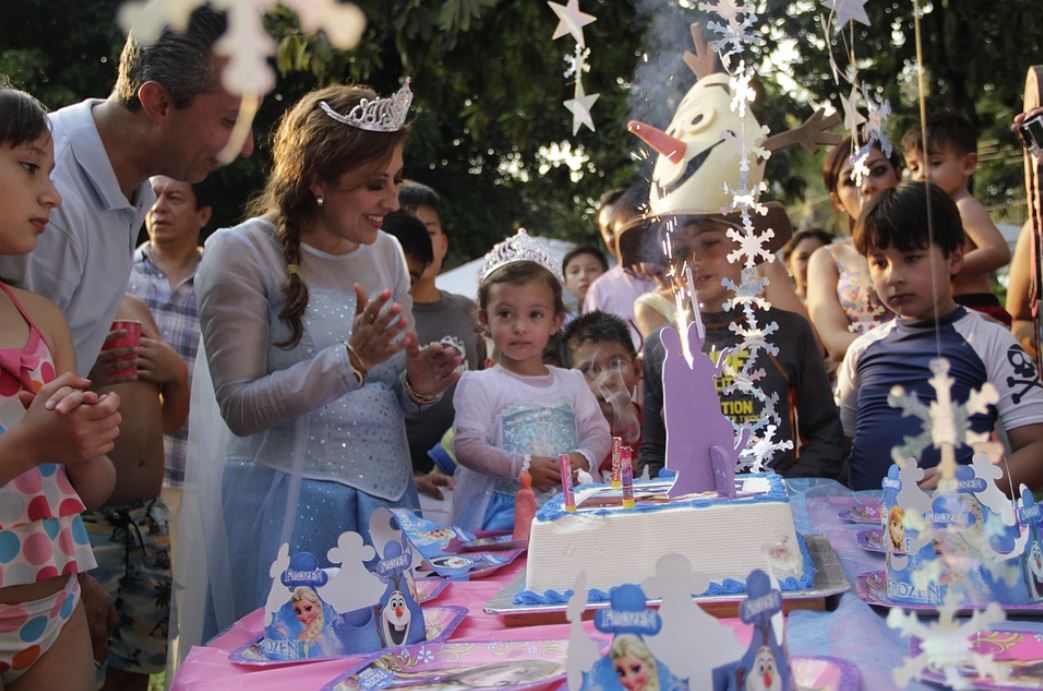I had a fair number of birthday parties during my childhood years. They were highly anticipated and often featured my favorite foods, a few simple games, and a handful of friends. But while they were thematic in nature, they never extended beyond decorations and ideas that my family and I couldn’t execute inexpensively on our own.
As I’ve observed, however, my birthday parties weren’t anything near what the typical party is like today. One of these was recently explained by columnist Jan Gordon in The Telegraph.
The party, it appears, was thrown for Gordon’s 5-year-old granddaughter Edie. It hosted an impressive guest list of, not just five, but 40 friends. Here is a description:
“Quite apart from the fact that there were two cakes (one a pink unicorn, the other a blue spaceship), there were also two bouncy castles (‘the fairy one for the girls and the other one for the boys,’ as Edie, who refuses to adapt to the concept of gender-fluidity, commented).
In addition to a sumptuous M&S feast, a professional face-painter, and personalised eco-friendly paper party bags, [the birthday girl’s mother] had also chosen the most child-friendly venue you can imagine (apart perhaps from Disney World): the ridiculously fabulous One O’Clock Club in the heart of south-west London’s nappy valley.
The 40-odd guests had a thrilling time playing in the grounds, which contained a whole terrace of chic Wendy houses, around 20 tricycles with trailers and a fully equipped miniature café.”
The party was chronicled on Instagram by Edie’s mother, who thanked the maker of the party favors “for helping me to look cool in front of the school mums.” Those words are revealing, for they suggest that elaborate birthday parties don’t always exist to please the child, but the adult instead.
The question is, why? Why do we as adults buy into the idea that our children must have the best of everything, not only in birthday parties, but in other things as well?
One of the obvious answers is that adults want to ensure they look good in front of their friends. After all, one has to keep up with the Joneses – even in birthday parties.
But I wonder if a more overlooked reason goes back to the idea that we want our children to like us and be our friends.
It’s not much of a secret that today’s society has elevated youth and vitality to a very high level. Age and wisdom, honored by cultures through the centuries, have seen their status demoted. And because of this, as Dr. Leonard Sax has been known to observe, we’ve created a “culture of disrespect,” where the desires and wishes of kids rule and adults are their humble servants, or at best, an afterthought.
But such an attitude is not healthy for parents or children. As Dr. Sax goes on to explain, the healthy, well-adjusted child is one whose parents are the authorities in his or her life, laying down the rules in a firm, but loving manner. The result of this is as follows:
“When parents matter more than peers, they can teach right and wrong in a meaningful way. They can prioritize attachments within the family over attachments with same-age peers. They can foster better relationships between their child and other adults. They can help their child develop a more robust and more authentic sense of self, grounded not in how many ‘likes’ a photo gets on Instagram or Facebook but in the child’s truest nature. They can educate desire, instilling a longing for higher and better things, in music, in the arts, and in one’s own character.”
If we want to cultivate an attitude of respect and gratefulness in our children, is throwing an extravagant birthday the way to achieve it?
















Leave a Comment
Your email address will not be published. Required fields are marked with *